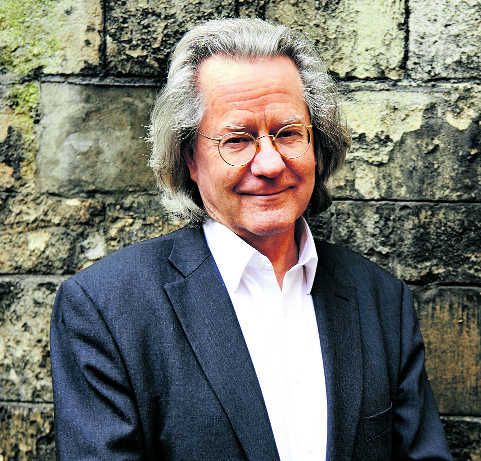Questioning belief, quest of reason
Vijay Tankha
AC Grayling has done possibly more than anyone in the last 20 years to popularise western philosophy and make accessible the immediacy of philosophical ideas to a general audience. Here he sweeps through the intellectual (and military) history of 17th century Europe claiming that, more than any other period, it broke with the medieval past and looked forward to modernity: ‘In the 17th century Galileo, Newton and others laid the basis of modern science, Descartes and Spinoza altered the history of philosophy, Hugo Grotius founded international law and Hobbes and Locke set the terms of modern political theory.’ We might quarrel about this or the other name (Leibniz instead of Spinoza for instance) or insist that human history does not arrange itself along the lines of the Julian calendar, but the broad stroke of his claim is not unfamiliar.
Grayling does not dwell only on the intellectual achievements of a few clever men. He uses anecdote and incident to track momentous changes. In 1606 for instance, Macbeth, a play which depends on the horror invoked by regicide, is first performed. Forty three years later, Charles I is publically beheaded to mixed applause. The divine light of kings is certainly fading.
Grayling foregrounds the 30-year war (fought, fruitlessly between the leading powers of Europe in the first half of the century). He sees in its enormous bloodletting not only a rearrangement of European powers, but a shift in outlook. The war, which ended in 1648 made ‘people grasp the essential futility of putting their beliefs of the mind to the judgment of the sword…rejecting religion as an object to fight for’. Fighting for one’s faith, thinks Grayling, maybe a complete waste of time and resources, but it can have important, if inadvertent results.
Grayling introduces what are now marginal figures in the history of ideas, as key components in the transformation of ways of thinking. The Frenchman, Mersenne for instance, remembered perhaps by historians of mathematics, was an intellectual facilitator of eminence, connecting and communicating with over a hundred leading intellectuals of the time.
Contemporary readers (and bloggers) will find it interesting that the catalyst for the transformation of the European mind was a working postal system, more or less in place by the end of the 16th century. Letters were not only the instruments of commerce but also of intellectual exchange, much in the way that journals are today.
Equally fascinating was the transition from magic to science. Grayling sketches the lives and works of cabalists and alchemists, from Agrippa to Paracelsus; a whole chapter on John Dee (professor of Greek at Cambridge at 19); arrested in 1555 for ‘the lewd and vain practices of conjuring, calculating and witchcraft’ Dee survived to become advisor to Elizabeth I. Mathematicians were often confounded with magicians and necromancers, and seen as a threat to social order. But many respectable scientists including Newton, dabbled in the black arts, Alchemy (Al-chemistry we might call it) like algebra was an import from Al Arab. Obviously everything cannot be packed into the same book, but with only a nod at Islam and an emphasis on the futility and falsity of religion as fundamental to the scientific outlook, the book spins a familiar Eurocentric tale.
But for all that a witty one, the conflict between religious faith and scientific skepticism is caught in Hume’s remark that ‘the age of miracles is not over for it is a miracle that people still believe in religion’. More than any other, ‘the 17th century is the moment when one world view displaces another, because the scientific version displaced that of faith’.
Lessons for us? The inflammatory nature of even local religious conflicts if allowed to escalate is a lesson that should not be lost on us. Indeed, instead of focusing on the glorious past of our native traditions, we should look critically and long at the follies of the Western nations. Desecration of holy places (Catholics v/s Protestants) and mass hysteria like the burning of witches were some of the highlights of the conflicts that ravaged Europe: ‘Accusations could fall on anyone — children as young as seven were executed…though there were sceptics, the madness gripped large parts of Europe.’
The impersonality and generality of science does not easily transfer into particularities and idiosyncratic beliefs: If we must still cling to some faith, we have nothing other than the constitution, as a common denominator that holds, notionally, diverse sections of our society together. If science is to coexist with faith, it must be faith in our diversity rather than in any presumed or proposed unity. Otherwise we may go the way Europe didn’t in the 17th century.










